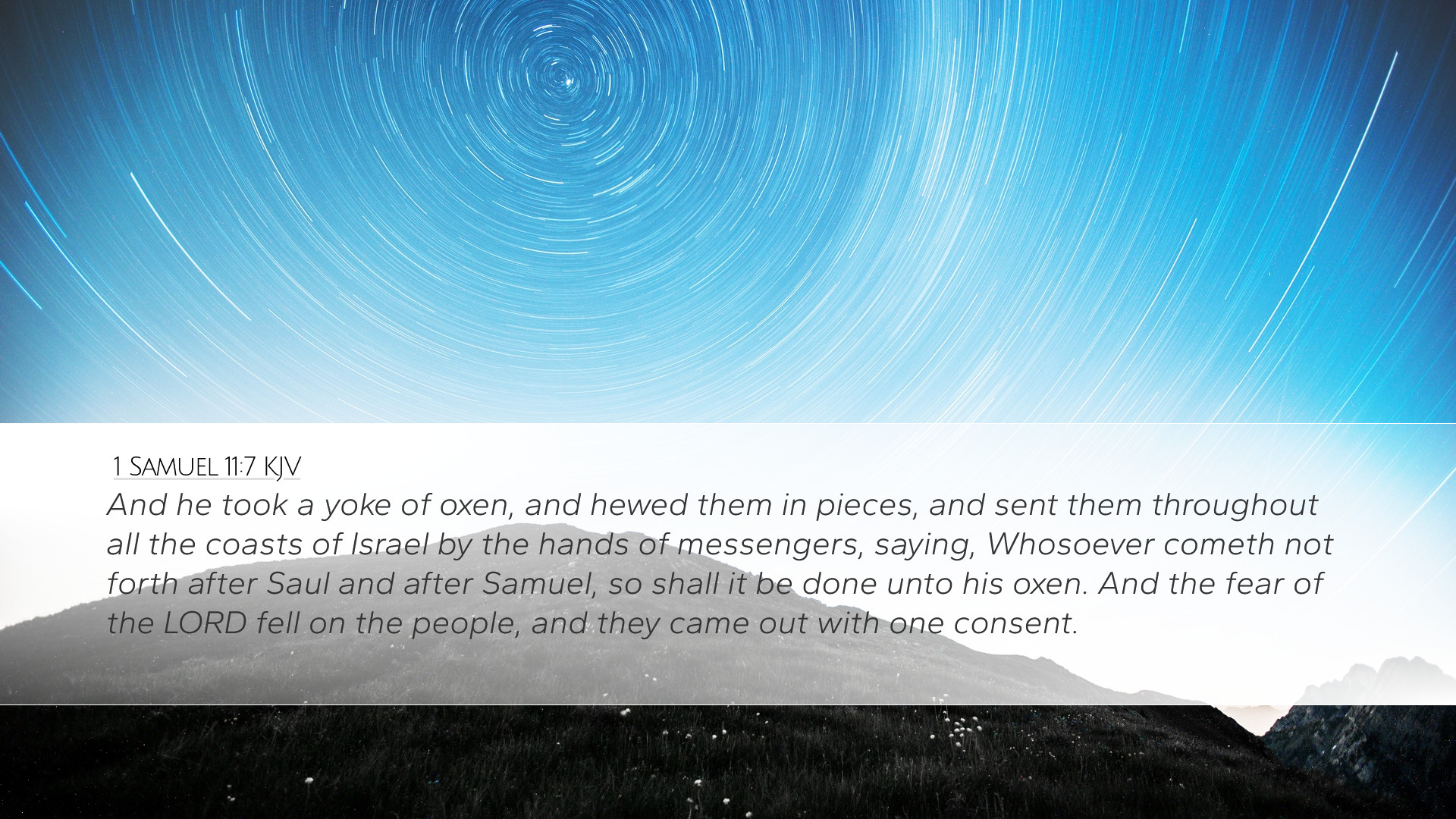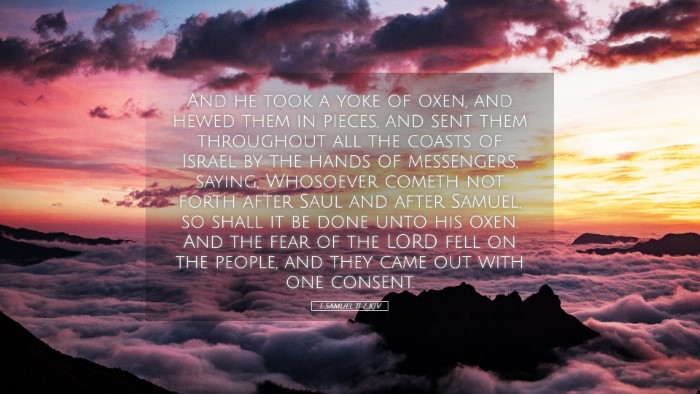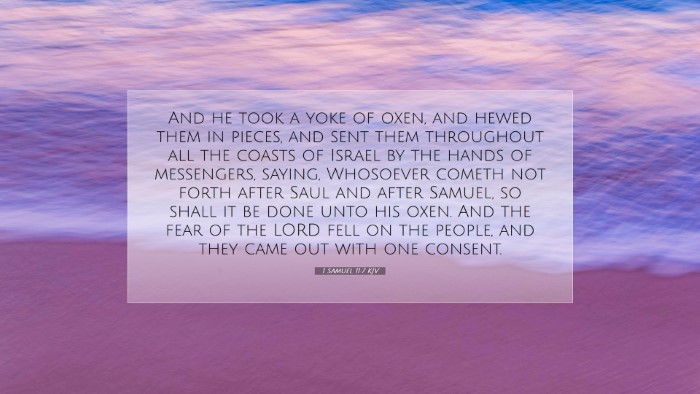Bible Commentary on 1 Samuel 11:7
Verse Reference: 1 Samuel 11:7 - "And he took a yoke of oxen, and hewed them in pieces, and sent them throughout all the coasts of Israel by the hands of messengers, saying, Whosoever cometh not forth after Saul and after Samuel, so shall it be done unto his oxen. And the fear of the LORD fell on the people, and they came out with one consent."
Introduction
This verse is pivotal within the narrative of 1 Samuel, illustrating the call to unity and action during a critical period for Israel. In this commentary, insights from various public domain sources, including Matthew Henry, Albert Barnes, and Adam Clarke, will provide a thorough understanding of the passage and its implications for leadership, fear of the Lord, and communal response.
Contextual Background
The historical context of 1 Samuel 11 places us in a time when Israel faced threats from neighboring nations. Saul, having recently been anointed king, is confronted with the immediate danger posed by the Ammonites. This dire situation required not only decisive leadership but also a unifying call to arms among the disheartened and scattered tribes of Israel.
Analysis of the Verse
The Symbolism of the Yoke of Oxen
Matthew Henry points out the significance of taking a yoke of oxen, which serves as a symbol of commitment and sacrifice. By cutting the oxen and sending pieces throughout Israel, Saul demonstrated the seriousness of his message—there would be dire consequences for those who refused to unify against the common enemy.
The Act of Sending Messengers
Albert Barnes comments on the method of communication through messengers. This choice highlights the urgency of the situation and the need for quick mobilization. It also reflects an ancient practice where individuals acted as bearers of important news or commands, emphasizing Saul’s role as a leader who took challenges seriously.
Fear of the Lord as a Motivating Factor
The phrase "the fear of the LORD fell on the people" is a critical aspect of this narrative. Adam Clarke elaborates on this notion, indicating that the fear of God can lead individuals to make sacred commitments and unite under a cause greater than themselves. The people’s unanimous response is indicative of divine influence upon their hearts, moving them to action out of reverence for God and respect for Saul’s leadership.
Theological Implications
Leadership and Authority
This passage underscores the role of divine providence in leadership. The anointing of Saul as the king was a result of Israel's demand for a monarch like the other nations, and this moment reflects God’s acceptance of that choice. The authority bestowed upon Saul is affirmed by the people's response, showcasing how effective leaders inspire commitment and loyalty through both action and moral imperative.
Unity in Times of Crisis
1 Samuel 11:7 serves as a reminder of the necessity of unity in the face of adversity. The call to arms reveals how communal identity can transcend individual differences, especially when a shared threat looms. The collective action endorsed by Saul is a powerful metaphor for the church's unity in spiritual warfare today, where believers are reminded of the importance of working together for a common cause.
Historical and Prophetic Resonance
Scholars recognize that this narrative not only shapes Israel's monarchical history but also foreshadows the ultimate unification found in Christ. The call to follow a leader in times of strife resonates with the believer's call to follow Jesus, who also faced overwhelming opposition and called His followers to stand firm in faith.
Conclusion
1 Samuel 11:7 is rich with meaning and provides profound lessons about leadership, unity, and divine fear. It challenges leadership figures in modern contexts to recognize their God-given roles and responsibilities, while also nudging congregations toward a deeper understanding of collective identity in faith. As pastors, students, theologians, and Bible scholars delve into this passage, may they find both historical significance and practical applications for today’s church.
References
- Matthew Henry's Commentary on the Whole Bible
- Albert Barnes' Notes on the Bible
- Adam Clarke's Commentary on the Bible


